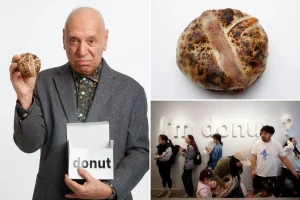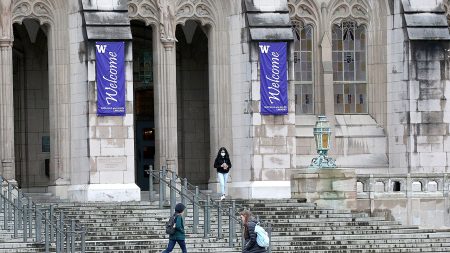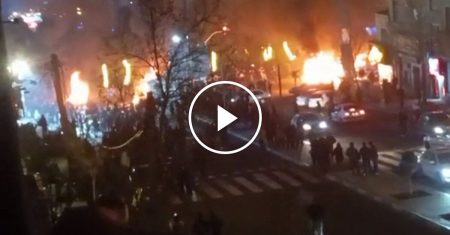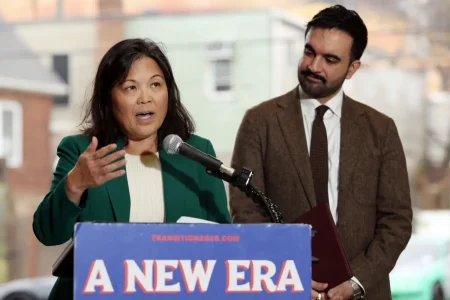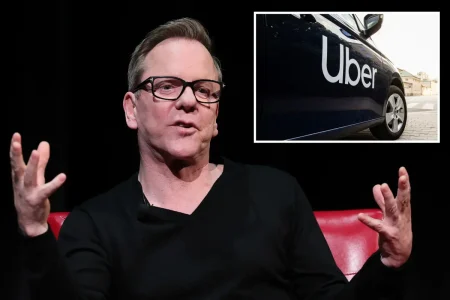Trump Administration Weighs Bold Options in Venezuela as Decision on Maduro Regime Looms
White House Deliberates Strategy for Potential Venezuelan Intervention
President Donald Trump continues to weigh multiple options for addressing the ongoing crisis in Venezuela, as administration officials present an increasingly expansive set of potential objectives that could justify more decisive action against the government of President Nicolás Maduro. Senior advisers are advocating for a range of goals—from combating narcotics trafficking networks to securing Venezuela’s vast oil reserves—as part of a broader strategy that could ultimately lead to regime change in Caracas. While no final decision has been made, the deliberations highlight the administration’s growing frustration with the political and humanitarian situation in the South American nation, where economic collapse, widespread corruption, and authoritarian governance have created one of the Western Hemisphere’s most pressing geopolitical challenges.
The range of potential objectives being considered reveals the complex calculations behind what would represent a significant shift in U.S. foreign policy toward Venezuela. Security officials have reportedly emphasized the strategic benefits of disrupting drug cartels operating with alleged protection from elements within the Maduro government, arguing that such groups pose direct threats to American communities battling opioid epidemics and other narcotics-related challenges. This security-focused approach aligns with the administration’s broader emphasis on combating transnational crime organizations and would provide a justification that might resonate with domestic constituencies concerned about drug trafficking. Meanwhile, economic advisers have highlighted the potential benefits of establishing greater American influence over Venezuela’s petroleum industry, which despite recent mismanagement remains home to the world’s largest proven oil reserves. Such action could potentially stabilize global energy markets while depriving the Maduro regime of its primary revenue source, though critics warn it could feed into narratives about U.S. interventions being motivated by resource acquisition rather than humanitarian concerns.
Regional Security Concerns Drive Strategic Calculations
The deliberations occur against a backdrop of growing regional instability, with Venezuela’s political and economic crisis forcing millions of citizens to flee to neighboring countries, straining resources and creating humanitarian challenges across South America. National security advisers have presented intelligence assessments suggesting that the Maduro regime’s increasingly close relationships with Russia, China, and Iran pose additional strategic concerns beyond the humanitarian crisis, potentially establishing footholds for adversarial powers in the Western Hemisphere. “The situation in Venezuela represents a convergence of threats to U.S. interests—humanitarian, security, economic, and geopolitical,” said a former State Department official familiar with the administration’s thinking who requested anonymity to discuss sensitive deliberations. “The challenge for policymakers is determining which of these threats justifies which level of response, and whether the benefits of direct intervention outweigh the significant risks.”
The Trump administration has already implemented several rounds of economic sanctions targeting the Venezuelan government and key officials, while recognizing opposition leader Juan Guaidó as the country’s legitimate interim president—a position shared by dozens of other nations. However, these measures have thus far failed to dislodge Maduro, who maintains control of the military and security apparatus despite the country’s economic free-fall and widespread public discontent. This perceived stalemate has prompted some officials to advocate for more direct approaches, arguing that the humanitarian situation continues to deteriorate while regional stability becomes increasingly threatened. “Every day that passes under the current regime represents another day of suffering for the Venezuelan people,” said one administration official involved in the policy discussions. “At some point, the question becomes whether the international community has a responsibility to act more decisively.”
Competing Visions Within Administration Complicate Decision-Making
The internal debate reflects deeper divisions within the Trump administration regarding the appropriate use of American power abroad. Some advisers, particularly those aligned with traditional Republican foreign policy perspectives, have advocated for a more interventionist approach, arguing that Venezuela represents a case where American leadership could produce positive outcomes both for U.S. interests and for the Venezuelan people. These officials point to the administration’s stated commitment to promoting democracy and opposing authoritarian regimes as justification for more decisive action. Others, particularly those who have emphasized the president’s “America First” approach to foreign policy, have counseled greater caution, warning about the potential for another costly and open-ended military engagement at a time when the administration has sought to reduce American commitments overseas.
The president himself has sent mixed signals about his preferred approach, occasionally speaking forcefully about the need to address the Venezuelan situation while also expressing reluctance to commit American forces to another foreign conflict. “All options remain on the table,” Trump stated recently when questioned about Venezuela, employing the deliberately ambiguous phrasing that has characterized the administration’s public position. Behind closed doors, sources indicate the president has asked detailed questions about the potential costs and benefits of various approaches, including assessments of how different strategies might be perceived domestically during an election year. The timing of these deliberations—occurring amid impeachment proceedings and at the beginning of a presidential campaign—adds another layer of complexity to an already multifaceted foreign policy challenge.
International Reactions and Legal Considerations Shape Available Options
Any significant American action in Venezuela would occur within a complex international legal and diplomatic context. While numerous countries have recognized Guaidó as Venezuela’s legitimate leader, many nations—including important regional players like Mexico—have maintained relations with the Maduro government or called for diplomatic solutions rather than intervention. Russia and China have explicitly warned against American interference, with Moscow sending military personnel and equipment to Venezuela in a show of support for Maduro. International law experts note that military intervention without either United Nations Security Council authorization or a clear self-defense justification would face significant legal challenges, potentially undermining the legitimacy of any action taken.
Some administration officials have reportedly explored whether arguments based on regional security threats, particularly drug trafficking networks and refugee flows, might provide legal justification under existing international frameworks or regional agreements like the Rio Treaty. Others have suggested that an explicit invitation from Guaidó, as the recognized interim president, could provide sufficient legal basis for limited intervention. “The administration is carefully evaluating all available legal authorities,” said one Justice Department official involved in the deliberations. “Any action taken would need to stand up to international scrutiny and be defensible under both domestic and international legal standards.” These legal considerations intersect with diplomatic calculations about how various regional partners would respond to different courses of action, creating a complex decision matrix that resists simple solutions.
Historical Context and Future Implications Weigh Heavily on Decision-Makers
As the administration considers its options, the shadow of previous American interventions in Latin America looms large over the deliberations. Critics have already drawn parallels to controversial Cold War-era operations in countries like Chile, Nicaragua, and Panama, arguing that another intervention would reinforce perceptions of the United States as an imperial power willing to overthrow governments that challenge its interests. Supporters of more decisive action counter that the Venezuelan situation more closely resembles humanitarian interventions like those in Kosovo or Libya, where international coalitions acted to prevent humanitarian catastrophes and support democratic transitions. “This is fundamentally about the Venezuelan people and their right to determine their own future, free from corruption, oppression, and economic mismanagement,” argued one State Department official involved in Venezuela policy.
Whatever decision the president ultimately makes will have far-reaching implications not only for Venezuela and its citizens but also for American influence in Latin America, relations with major powers like Russia and China, and the broader international understanding of when intervention in another country’s internal affairs may be justified. Administration officials emphasize that they continue to prefer a peaceful, negotiated transition of power that would allow for free and fair elections. However, as the humanitarian situation deteriorates and various strategic interests come into sharper focus, the pressure to consider more dramatic options continues to build. “The president is carefully weighing all aspects of this complex situation,” said one senior White House official. “His ultimate decision will be guided by what best serves both American interests and the legitimate aspirations of the Venezuelan people for democracy, security, and prosperity.” As deliberations continue within the administration, millions of Venezuelans remain caught in a deepening crisis with no clear resolution in sight, their fate increasingly tied to strategic calculations being made thousands of miles away in Washington.
